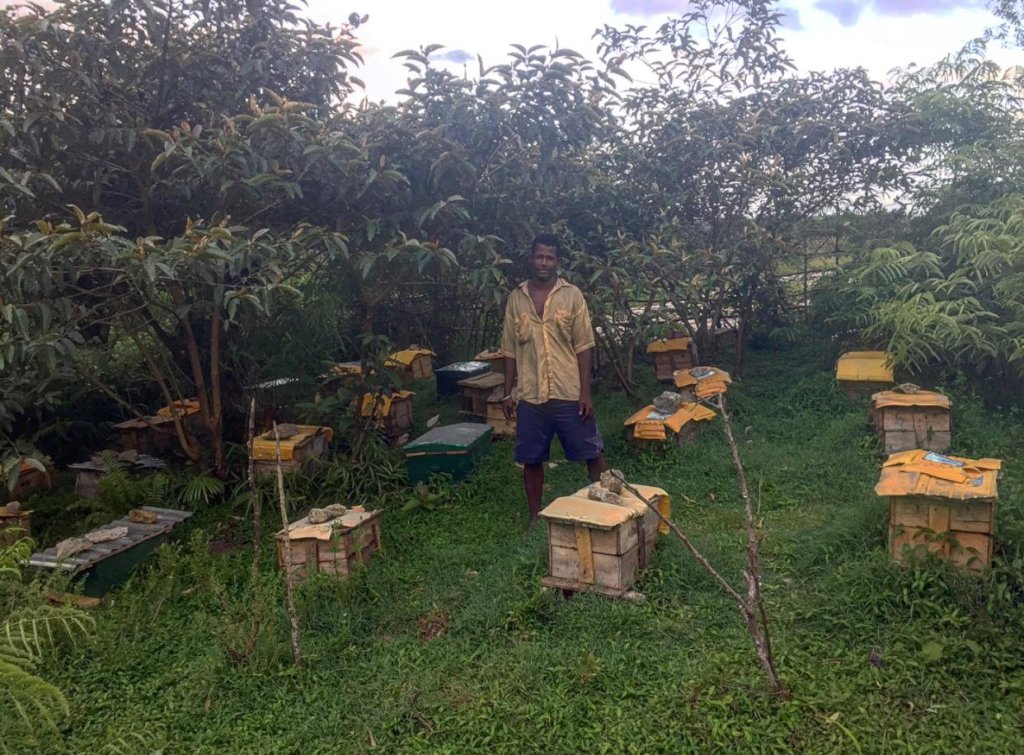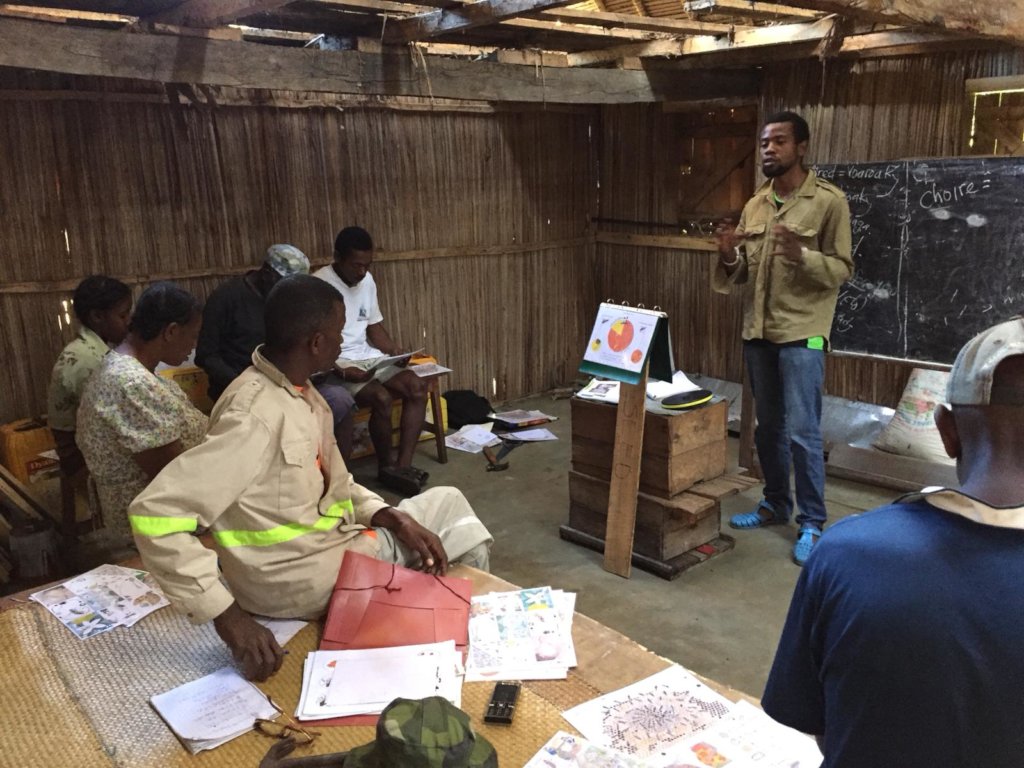By Cameron Bell | Project Development Officer
Fara Fara Vatambe is home to one of Project Renitantely’s most successful beekeepers. Before joining Project Renitantely, Mora Soalia, 45, had a fragile livelihood - relying on unpredictable rice and cassava farming to support himself and his family. One year on, having considerably improved his beekeeping skills and knowledge, Mora is now able to harvest enough honey to significantly improve his family’s security.
Much of Mora’s success has come in the past 4 months, in which time he has seen his bee colonies rapidly grow in strength and size from having 8 populated hives in August to the 37 he now owns as of December 2018. This success has largely been due to the delivery of two important training workshops by SEED’s Local Beekeeping Technicians with the help of Visual Learning Aids created by our Beekeeping Specialist.
In the first workshop, on the topic of populating hives, project participants were taught how to obtain new bees for their hives, both by going out and capturing wild bee colonies and by building bait hives to entice the bees to come to them. In addition, the beekeepers were instructed on how to split hives, which not only prevents the hives from overpopulating and a colony swarming, but also allows beekeepers to grow their collection of populated hives and harvest more honey!
The second workshop, on the topic of keeping healthy beehives, saw project participants educated on the necessities of maintaining their hives to a high standard. Bees are very clean insects and will often abandon a hive if it becomes too wet or dirty. Therefore, our beekeepers were told the importance of having an adequate roof on the hives to keep out rain and repairing cracks in the hive walls to ensure foreign insects and their associated diseases don’t infect the colony.
On a recent visit to Fara Fara Vatambe, the Renitantely team were impressed to see how Mora had used the knowledge he acquired at these workshops and own innovation to improve his beekeeping practices. For example, in a setting where waterproof materials are hard to come by and certainly hard to afford, Mora had the idea to repurpose old and damaged jerry cans to form protective roofs for his hives. This has been an essential factor in Mora’s recent beekeeping success. Without improving the standard of his beehives, Mora’s colonies likely wouldn’t have had the strength that they currently do which has allowed him to split his colonies and grow his number of populated hives so successfully in such a short space of time.
Mora is far from the only beekeeper putting their newfound knowledge into practice. The most recent quarterly survey carried out across Renitantely’s 6 target Fokontany in late November found that in the two months since the workshops were delivered, 46% of beekeepers had already attempted to set up bait hives and 37% had tried capturing a wild bee colony (of which a remarkable 74% were successful). This has led to the great news that 9 beekeepers, who were without any populated hives in August, now do have bees in December, allowing them to benefit from honey harvesting.
It has been very encouraging to see the strong impact the recent training workshops have already had on the successes of beekeepers like Mora Soalia. With more training workshops to come in early 2019, hopefully, all our beekeepers will start to enjoy the same levels of success soon!
Project reports on GlobalGiving are posted directly to globalgiving.org by Project Leaders as they are completed, generally every 3-4 months. To protect the integrity of these documents, GlobalGiving does not alter them; therefore you may find some language or formatting issues.
If you donate to this project or have donated to this project, you can recieve an email when this project posts a report. You can also subscribe for reports without donating.
Support this important cause by creating a personalized fundraising page.
Start a Fundraiser
